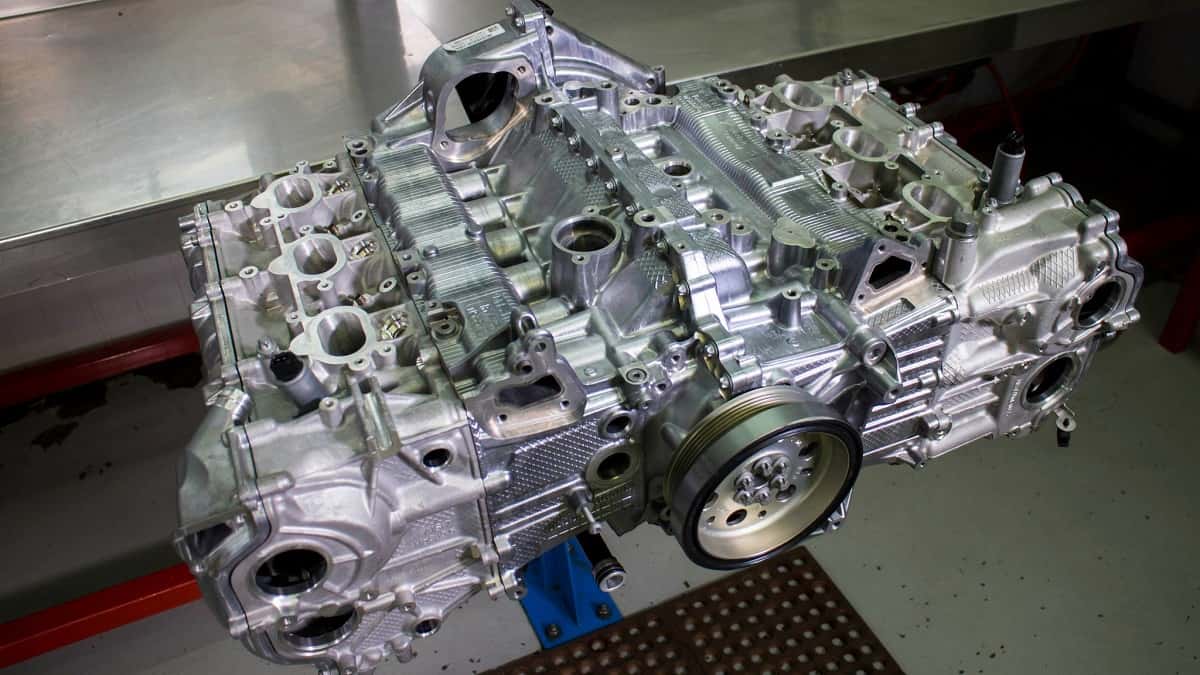
Porsche Cayman and Boxster Will Return To a Flat 6, Allowing the 718 Twins to Reach Further
Output jumps by a substantial 40 horsepower and 52 lb-ft of torque. 1994 Porsche 911 Turbo turbocharged 3.6-liter flat-6 engine. 1995: The 3.6-liter flat-six gets hydraulic valve lifters and.
The air cooled, Flat Six cylinder engine of a Porsche 911 rebuilt by Singer Design [2700x1797
Difference between two flat 6 cylinder engines: 180° V on the left, boxer on the right. The advantages of flat engines are a short length, low centre of mass and suitability for air cooling.. Compared with the more common straight engines, flat engines have better primary balance (resulting in less vibration); however the disadvantages are increased width and the need to have two cylinder heads.
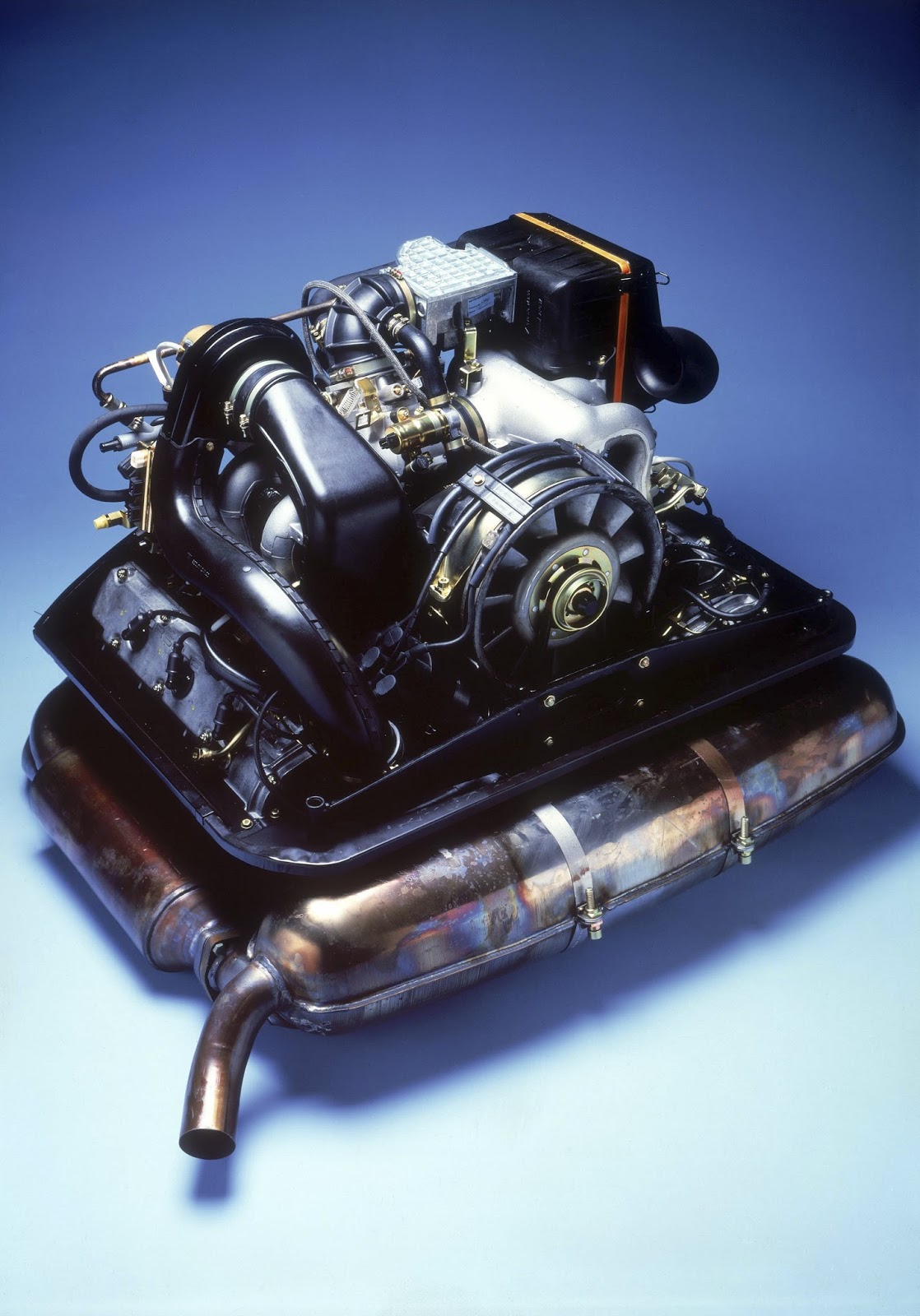
Speedmonkey Porsche flat6 engine 50 year history megagallery
The 2.7-liter flat-six engine earned Porsche its fourth "Engine of the Year Award" in 2013, according to Automotive World. Porsche made its decision regarding the flat-six engine over 50 years ago.

RSeries F6I Engines Flat Six Innovations Porsche Engine Experts
Originally an air-cooled 2.0-litre engine with Solex carburettors, the Porsche 911's flat six engine got its first major revision in 1969 with the introduction of the B Series cars. With this came a switch to mechanical fuel injection on the 911E and flagship 911S models. A year later and the three 911 models (T, E and S) had their capacity.
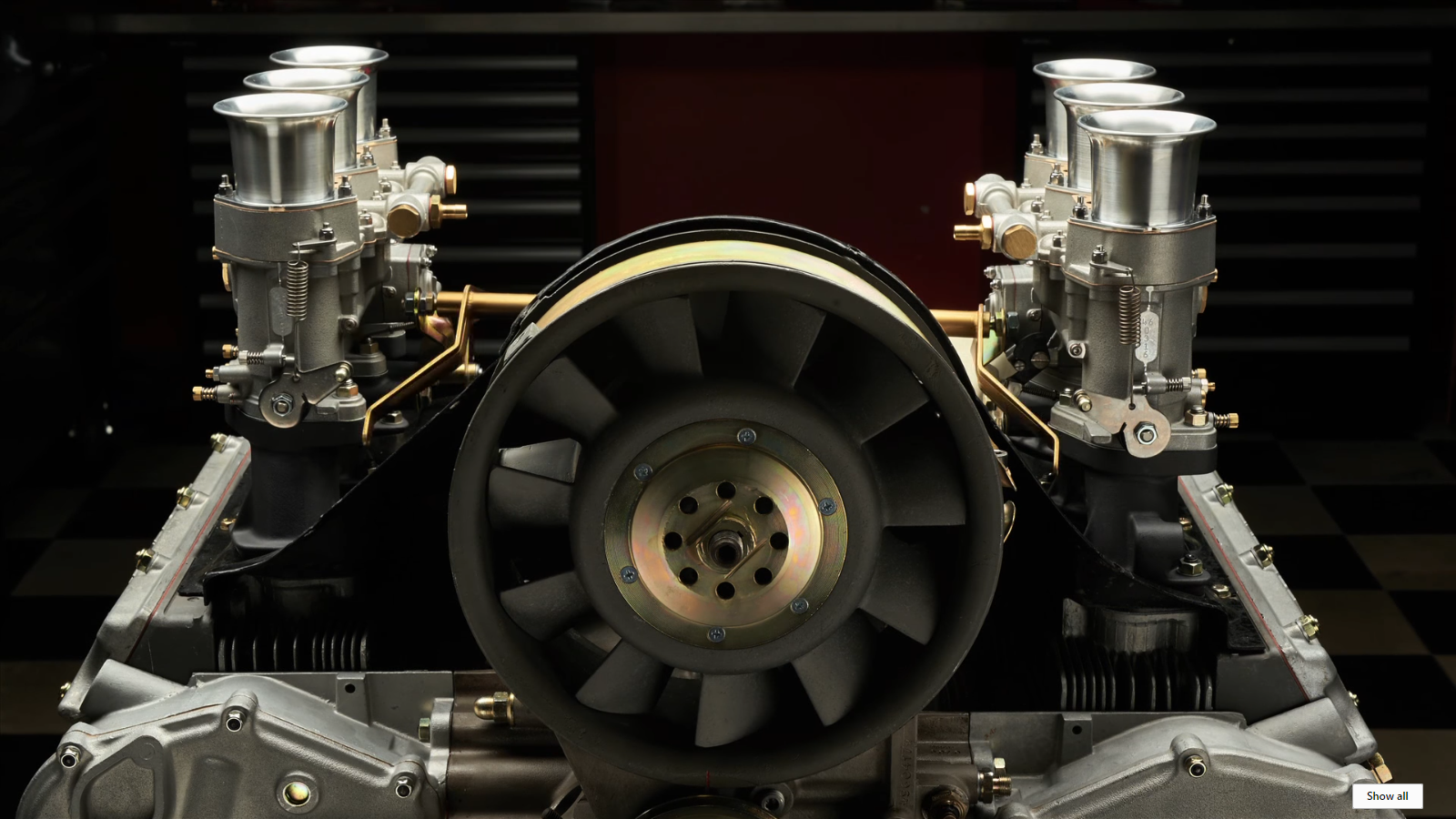
Watch This Mesmerizing Porsche FlatSix Engine Assembly The Drive
A flat-six engine, also known as a horizontally opposed-six, is a six-cylinder piston engine with three cylinders on each side of a central crankshaft. The most common type of flat-six engine is the boxer-six engine, where each pair of opposed cylinders moves inwards and outwards at the same time. An alternative configuration for flat engines is as a 180-degree V engine, where both cylinders.
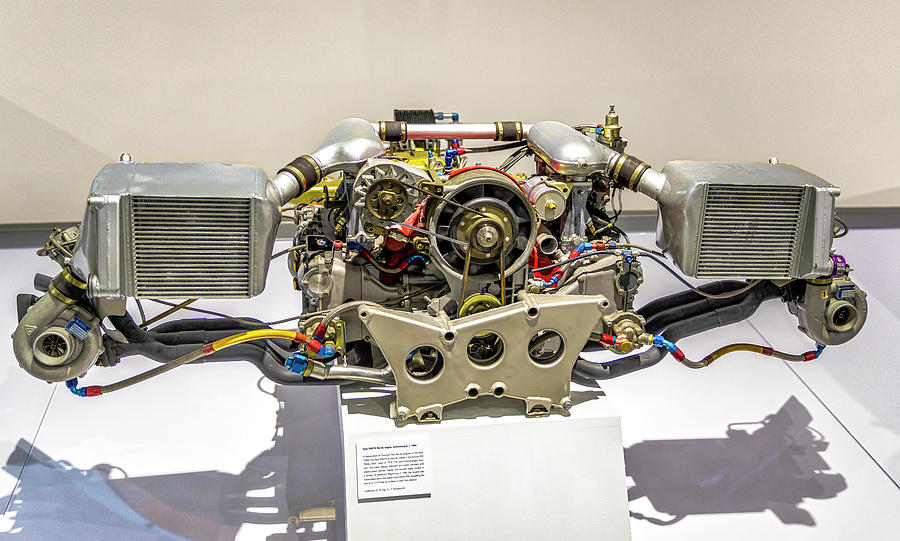
Porsche Type 935/76 FlatSix Engine Photograph by Gene Parks Pixels
With an aluminum head for 6.2:1 compression, the De Soto engine made 100 horsepower at 3,400 RPM and 185-lb.ft. of torque at 1,200 RPM. The 100-hp engine was optionally available in Chryslers as well. The 242 served essentially unchanged until the debut of the slightly downsized 1937 Chrysler and De Soto cars, when a destroked version.
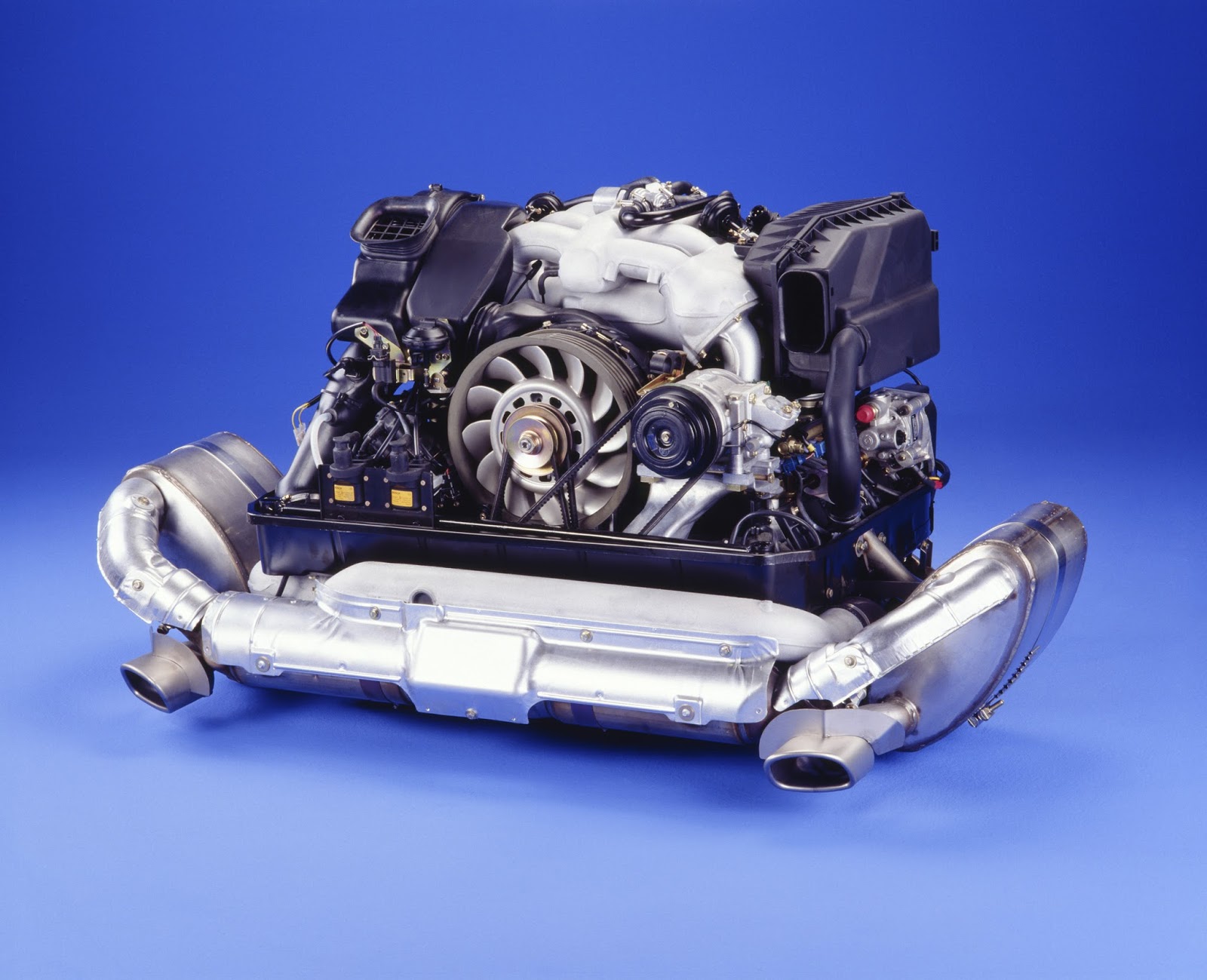
Speedmonkey Porsche flat6 engine 50 year history megagallery
The Porsche 911 is perhaps the most famous example of a car that has used a flat-six engine. The first Porsche 911 was introduced in 1964 and was powered by a 2.0-liter flat-six engine that produced 130 horsepower. Over the years, the Porsche 911 has been powered by a range of these engines, with displacement ranging from 2.0 liters to 4.0 liters and horsepower ranging from 130 to 700.
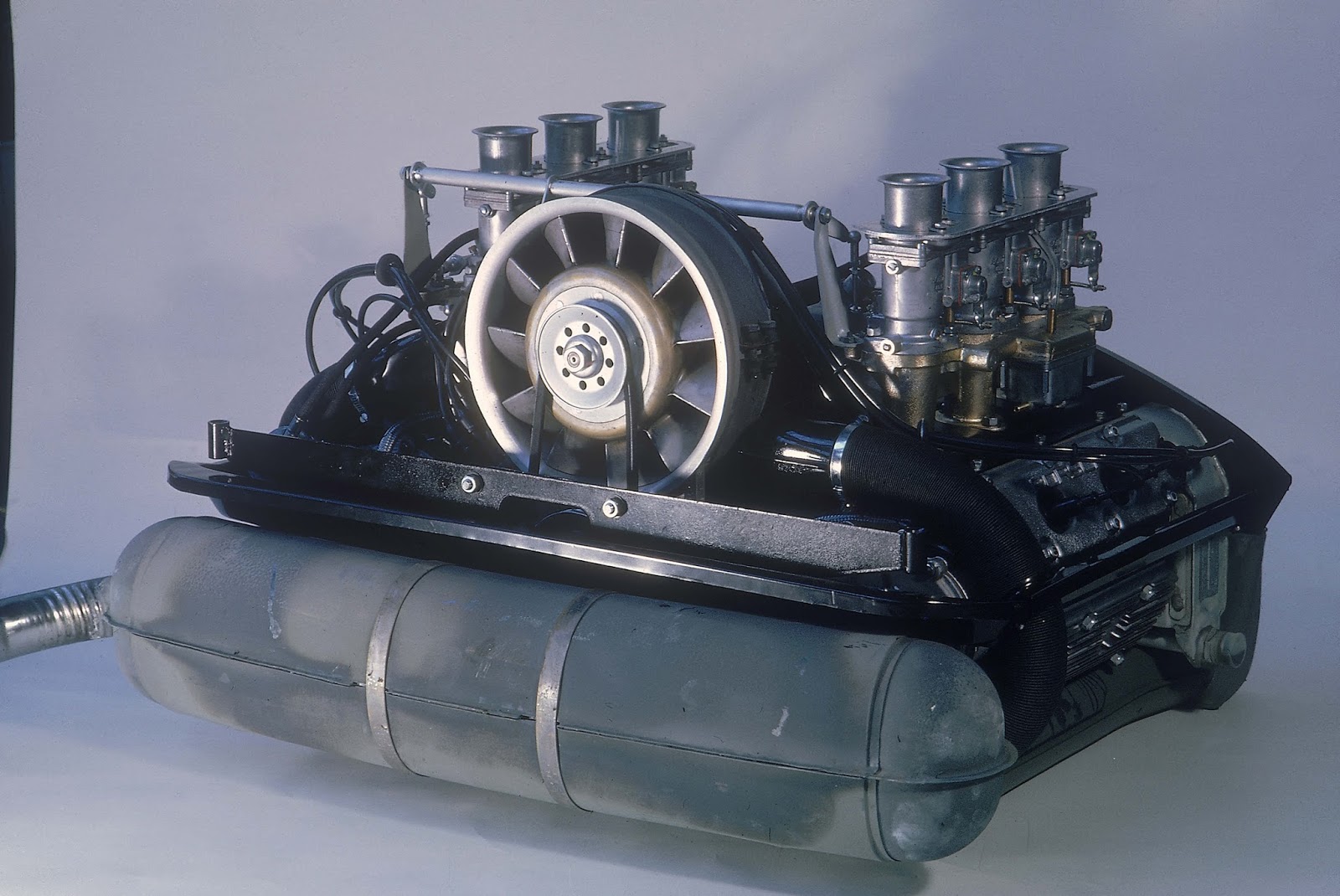
Porsche flat6 engine 50 year history megagallery The Crittenden Automotive Library
The 3.8-liter flat-6 MDH.NA engine is actually an updated version of the Turbo S engine, rather than the 4.0-liter we mentioned above. This motor got larger variable-geometry turbochargers, larger exhaust manifold primaries, larger intercoolers, and redesigned pistons. As a result, the engine makes 700 hp at 7,000 rpm and 553 lb-ft of torque.
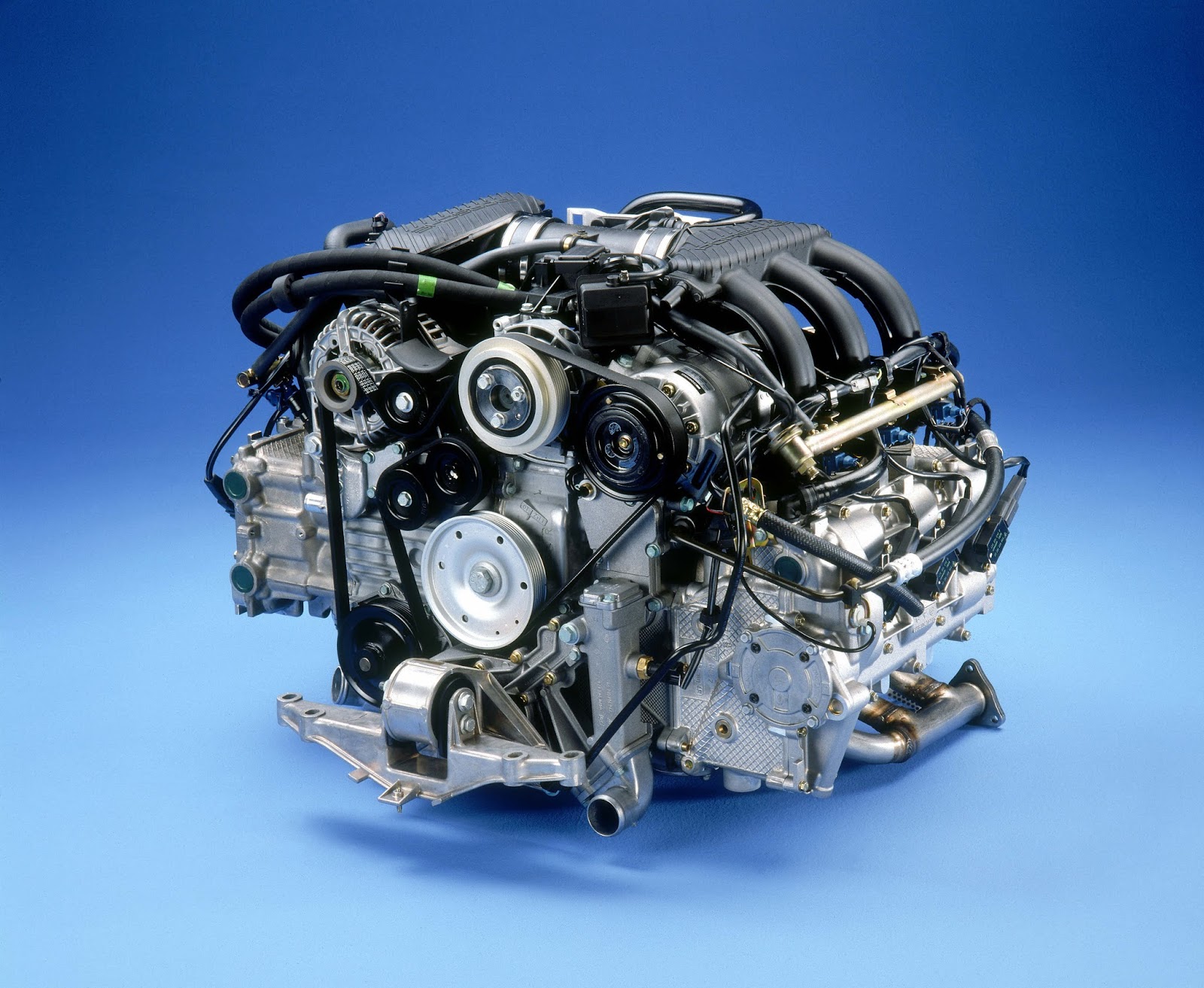
Speedmonkey Porsche flat6 engine 50 year history megagallery
Porsche announced that the new 718 Cayman and Boxster GTS will be powered by a naturally aspirated 4.0-liter flat-six.. this engine is the 992-generation 911's 3.0-liter flat-six, though.

Turbocharged Corvair Flat Six Is A Neat Engine horsepower
The 911's heart and soul is a rear-mounted six with cooling provided by fins and a fan. This engine has its crankshaft in the middle, with three cylinders laid flat on each side. Vastly exceeding what you'd expect from a layout that descended from the VW Beetle, the 911 engine provides sparkling performance and a vivid personality. This.
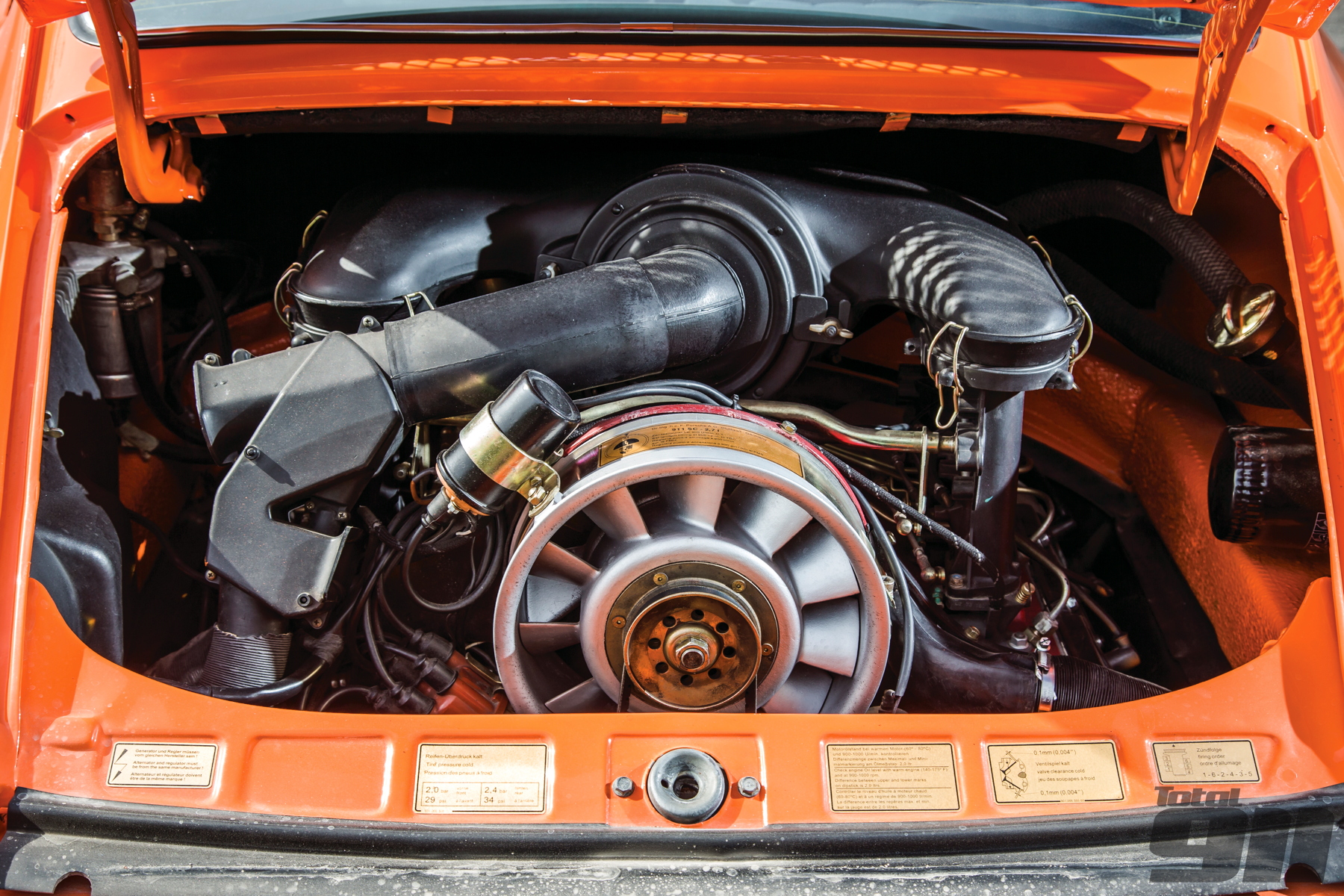
Flat six engine A Porsche 911 history Total 911
The Subaru six-cylinder engines are a series of flat-6 engines manufactured by Subaru, a division of Fuji Heavy Industries, made in three distinct generations.The ER27, derived from the Subaru EA first-generation flat-4, was used as the sole engine option in the premium model 1988-91 Subaru Alcyone VX (XT6 in the United States). The EG33, derived from the Subaru EJ second-generation flat-4.
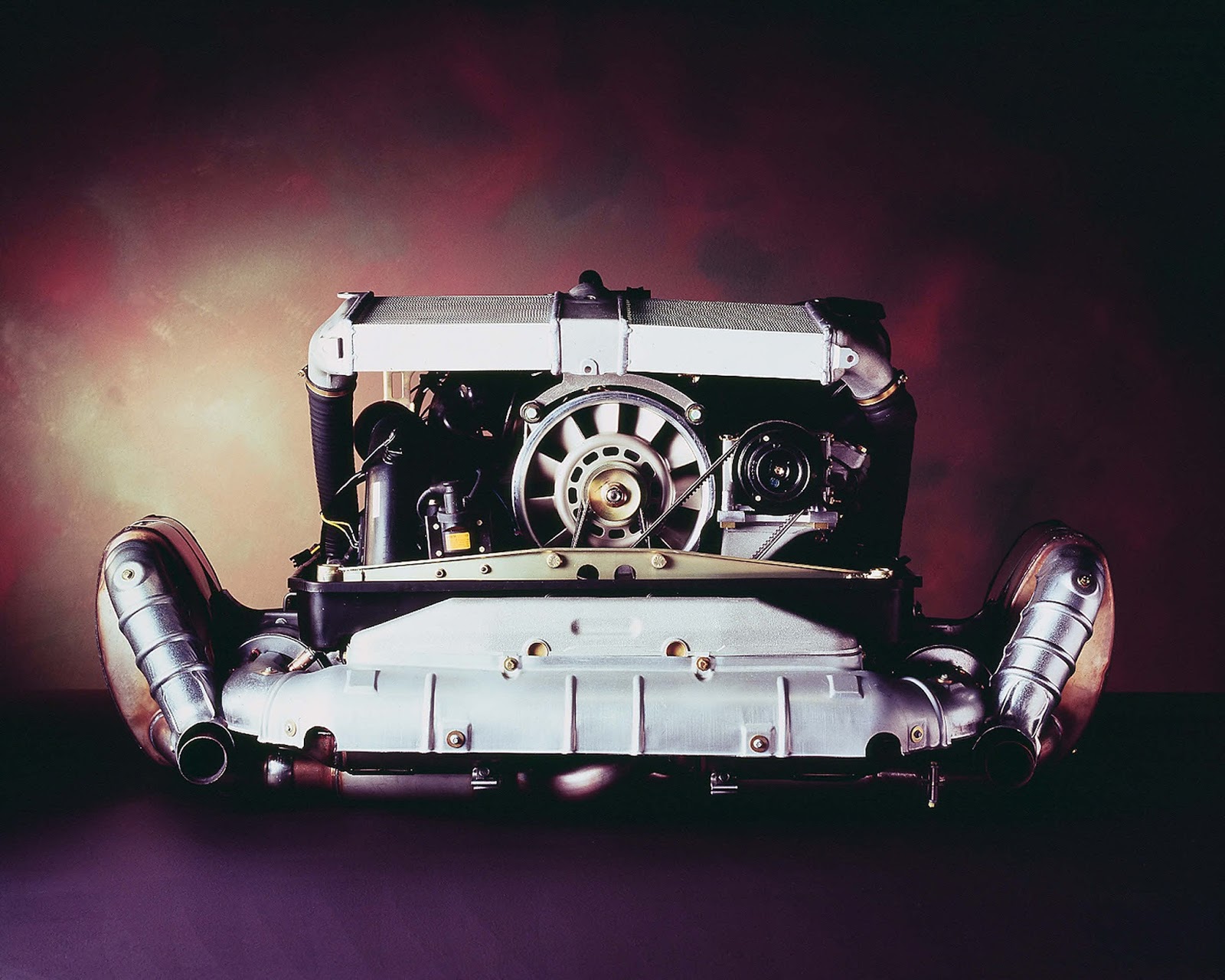
Speedmonkey Porsche flat6 engine 50 year history megagallery
The aircooled Flat 6 program here is much different than other companies, as we do not accept compromise, or make budget cuts to earn more profit. Each aircooled Porsche engine that we build is based from the customer's original engine, extracted from their car. We then process the engine into a Flat 6 Innovations creation, using our unique.

How Porsche's Brilliant AirCooled FlatSix Engine Thrived for Three Decades — Petersen
Thanks to a bore and stroke of 91.0 mm and 76.4 mm, the new engine displaces 2981 cc. This is down from 3436 cc and 3800 cc in the 991.1 Carrera and Carrera S models. The stroke is only reduced by.
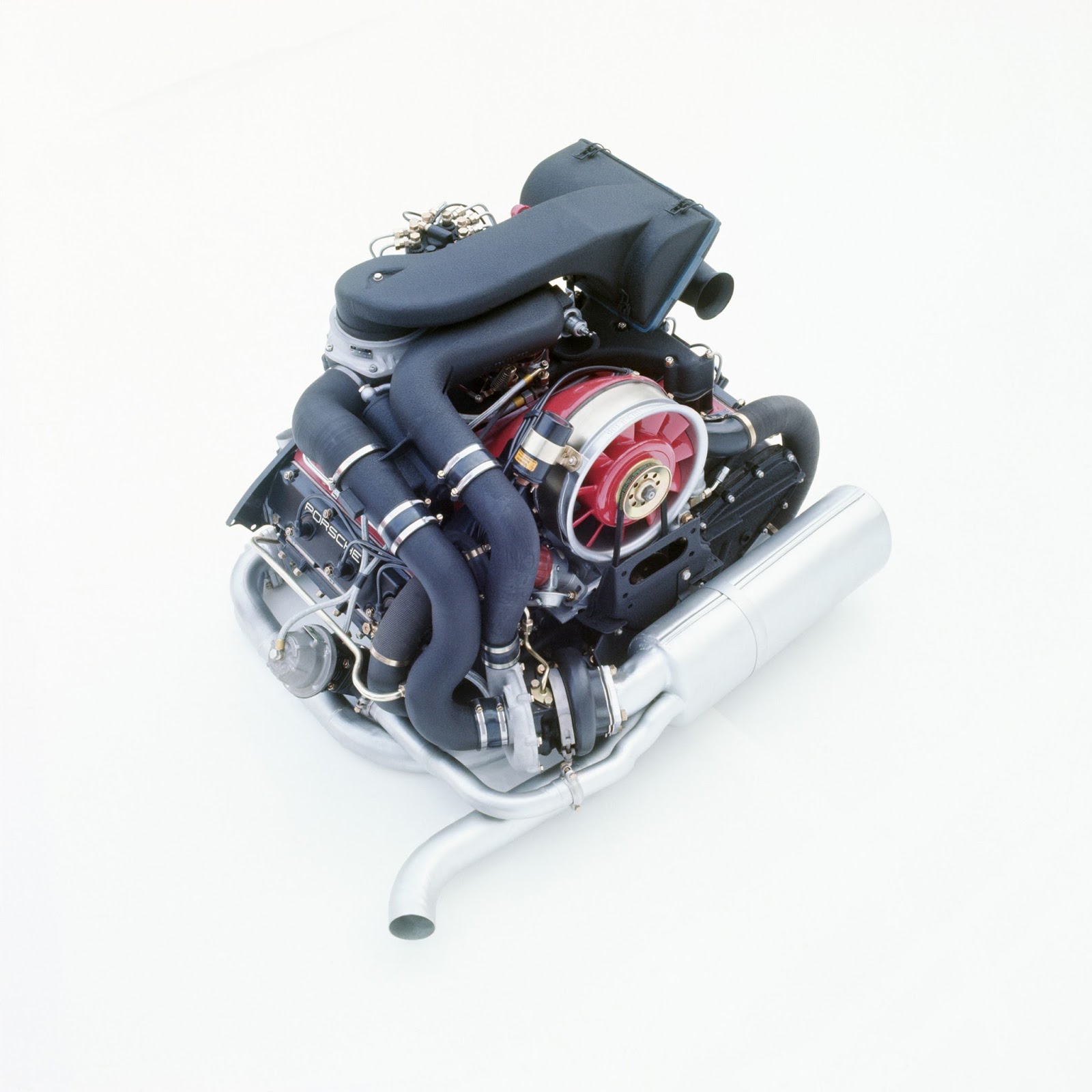
Porsche flat6 engine 50 year history megagallery The Crittenden Automotive Library
A flat-six engine, also known as a horizontally opposed-six, is a six-cylinder piston engine with three cylinders on each side of a central crankshaft. The most common type of flat-six engine is the boxer-six engine, where each pair of opposed cylinders moves inwards and outwards at the same time. An alternative configuration for flat engines.

How Porsche’s brilliant aircooled flatsix engine thrived for three decades Hagerty Media
Flat-6 engine in an older air-cooled 911. The Porsche flat-six engine series is a line of mechanically similar, naturally aspirated and sometimes turbocharged, flat-six boxer engines, produced by Porsche for almost 60 consecutive years, since 1963. [8] [9] The engine is an evolution of the flat-four boxer used in the original Volkswagen Beetle.
.jpg)
2008 Porsche Cayman S 3.4L Flat6 Engine Picture / Pic / Image
The flat-six engine has demonstrated its robust and versatile nature through the years, powering so many versions of the 911 and competing in races ranging from Le Mans to Paris Dakar. It's an engine that's scalable, tunable, and with continuous development, can meet almost any performance requirement. Through its use in the 911 and other.